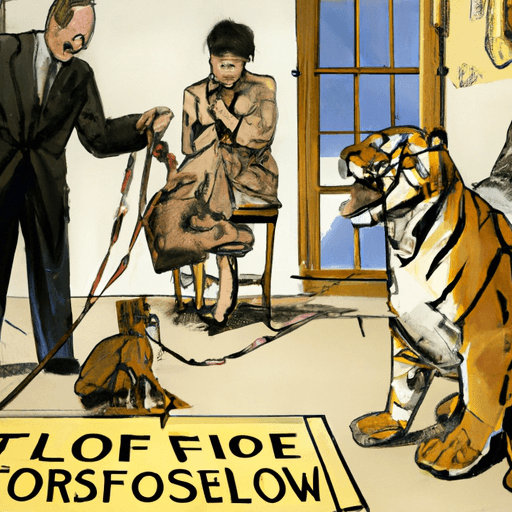The Ethics of Owning Exotic Pets
Non-traditional pets such as reptiles, birds, and wild cats often provoke fascination and appeal. However, behind their exotic allure lies a host of ethical, legal, health, and environmental concerns. This article delves into these issues, offering various perspectives including those of animal rights advocates, exotic pet owners, and veterinarians.
Animal Rights Advocates Perspective
From the viewpoint of animal rights advocates, the ownership of exotic pets raises significant ethical concerns. Animals are often captured in their natural habitat and subjected to stressful and crowded transport conditions. This results into unnecessary suffering and often death, malpractices that directly defy the principles of animal welfare.
Exotic Pet Owners Perspective
However, many exotic pet owners argue that owning these unique creatures offers educational value and nurtures respect for wildlife. They also argue that most people who acquire these pets receive extensive information and guidelines to care for them properly, minimizing potential mishandling or neglect.
Veterinarians Perspective
Veterinarians express concerns about the complex dietary and environmental needs of exotic species which are often unmet, causing stress, disease, poor health, and even premature death. They also worry as many exotic pets can carry zoonotic diseases.
Legal Perspectives
Legally, owning an exotic pet can be a complex battleground. Laws vary broadly based on location, often causing confusion and infringement. Adequate regulations need to be implemented to protect the welfare of these creatures, to curb illegal wildlife trade, and to reduce demand.
Health Risks
Exotic pets can pose serious health risks to both humans and other animals. They can potentially carry and transmit zoonotic diseases, some of which can be life-threatening. Also, pets like big cats and reptiles can be physically dangerous to humans and other pets if not handled correctly.
Environmental Implications
The environmental impact of owning exotic pets is often overlooked. The demand for exotic pets drives wildlife capture, threatening biodiversity. Additionally, exotic pets that escape or are released by their owners can become invasive species, disrupting local ecosystems.
Potential Alternatives and Solutions
For those interested in exotic wildlife, alternatives such as zoos, wildlife sanctuaries, and wildlife parks offer educational and interactive experiences without the associated ethical and environmental issues. A shift in public perception and respect for these creatures is necessary. Rather than viewing these animals as commodities or pets, they should be appreciated in their natural environments.
Conclusion
In conclusion, the contentious issue of owning exotic pets warrants careful consideration of various ethical, legal, health, and environmental factors. It is clear that greater awareness, robust regulations, and viable alternatives are necessary to protect both human and animal welfare.
















Comments
Leave a Comment